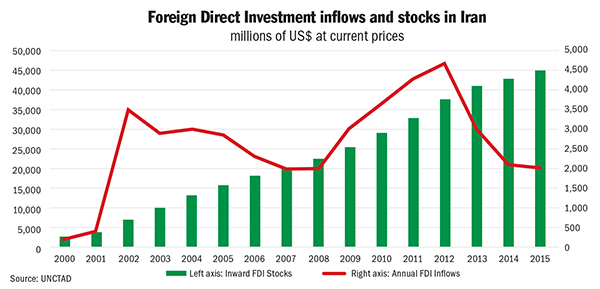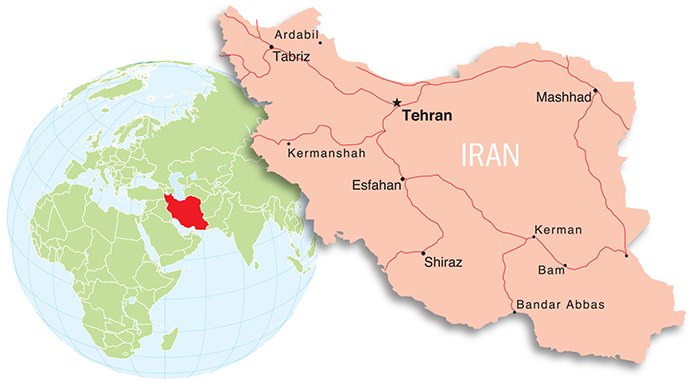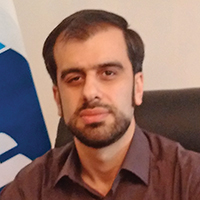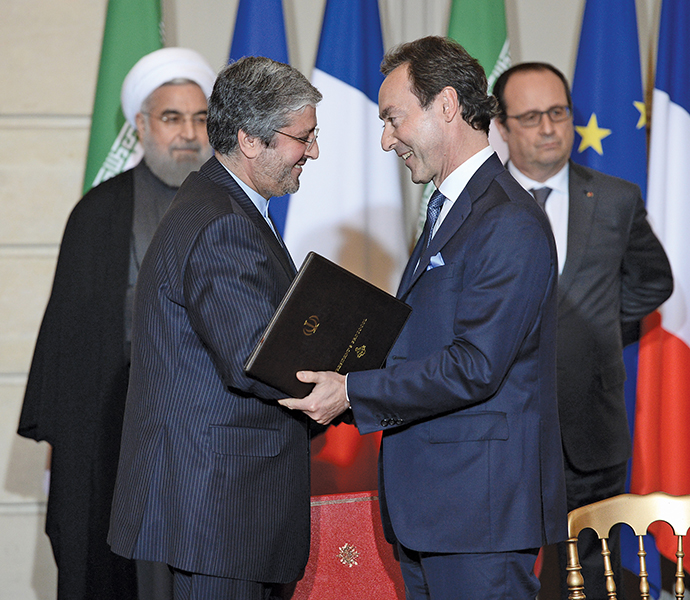In 2009, President Obama inherited 30 years of hostility in U.S.-Iran relations. One of the Obama administration’s first foreign policy initiatives was outreach to the Islamic world, including Iran. But reconnecting with Tehran proved difficult and frustrating. Diplomacy was complicated by political turmoil in Iran and by contradictory and provocative statements from Iran’s president, Mahmoud Ahmadinejad (2005-2013).
The ice began to thaw in March 2013, when, following Omani mediation efforts, Iranian and American negotiators met secretly in Muscat led by their respective deputy foreign ministers. Although these meetings produced few results, the Iranians were willing to break their taboo against bilateral discussions. After June 2013, with the election of President Hassan Rouhani on promises of improving life of Iranians, the relationship changed in ways that had been unimaginable since 1979.
Nineteen months of talks between the world’s six major powers and Iranian delegations led first to a “Joint Plan of Action” (JPOA) signed in Geneva in November 2013, then to a “Framework Agreement” signed in Lausanne in April 2015, and finally to a detailed “Joint Comprehensive Plan of Action” (JCPOA) signed in Vienna on July 14, 2015. Beyond the substance of these agreements, the symbolism of the relationship changed radically. Meetings were professional and free of the maximalist rhetoric that had marred earlier rounds. U.S. Secretary of State John Kerry and Iranian Foreign Minister Mohammad Javad Zarif described their encounters as “positive” and “productive,” adjectives not heard in this setting for more than 35 years.
On June 12, 2013, two days before the Iranian presidential election, I made a statement published by an economic daily “… Dr. Rouhani’s experience in foreign affairs and diplomacy will gather required ground for operation of international enterprises in Iran which will lead to economic development, job creation and improving life of Iranians.”
The above mentioned ground is JCPOA, so supporting JCPOA was a necessity to achieve defined goals in my statement.
On one hand, Iranians — all but roughly 5 percent of Iran’s population — love the United States. On the other hand, Rouhani’s administration knew that nothing would be practicable in their economic goals without the support of the United States, as the rest of the world — including EU countries and developed Asian countries — will not risk operating in a market which is blacklisted by the US, because of their interest in the giant American market.
So we had to demonstrate that JCPOA will lead to economic relations with the United States and approach public opinion and the Government of Iran as if the Iran deal with P5+1 (the five permanent members of the UN Security Council — China, France, Russia, the UK and the US — plus Germany) means a deal with the US. For the first time since the Iranian 1979 revolution I expressed that “We [our companies] are dealing with the United States.”

After January 16, 2016, JCPOA Implementation Day, nothing happened, and Iranians, the nation, President Rouhani and his administration were claiming that it was not their expected performance of JCPOA. Iran has no problem with US companies investing in its economy and creating joint ventures, President Hassan Rouhani said on January 28, 2016. “If US companies are willing to come and invest in Iran, to bring manufacturing to Iran, we have no problem with that,” Rouhani said in a wide-ranging interview aired live on state TV.
There is a misunderstanding and misinterpretation of JCPOA that led to a deadlock between Iran, the United States, and EU. We’ll review our witnesses as our evidence related to the above-mentioned misunderstanding and misinterpretation, and confirm that the required ground now available under JCPOA and all the demonstrated businesses is practicable, but in a framework of a custom-built international trade policy.
Let’s Review
The general prohibition on doing business with Iran contained in the Iranian Transactions and Sanctions Regulations (ITSR) form the core of US sanctions against this country. These restrictions have been in existence, in various forms, for over 25 years and have become deeply embedded in US businesses’ strategic planning and compliance processes.
Given the significance of any decision to license commercial activities with Iran, the US government review would center on an “inter-agency” process. The US Treasury Department’s Office of Foreign Assets Control (OFAC) is the lead agency, but input would derive from multiple other agencies, including the White House, National Security Council, Department of State, DOD, and Department of Commerce. The views of the US Congress would also play a significant role. “US-Person” is defined as any US citizen, permanent resident alien, or person actually in the United States, or any entity organized under the laws of the US or any US jurisdiction, including foreign branches (31 C.F.R. 560.314). In accordance with 31 C.F.R. 560.215, US-Person also includes US-owned or controlled foreign entities, such as overseas subsidiaries of US companies.
On JCPOA Implementation Day, secondary sanctions that were related to non-US persons were lifted, with the exception of transactions related to listed Iranian persons in OFAC’s Specially Designated Nationals (SDN) list. US persons’ lawful transactions with Iran are only those authorized by an applicable general or specific license issued by OFAC. Only US persons are permitted to be granted OFAC general or specific licenses.
Automotive
The first American car to be imported by EL KHODRO Company arrived in Tehran’s Imam Khomeini International Airport, Mehr news agency reported, on July 22, 2013. The car (a 2LT RS Package 2013 Camaro convertible, manufactured by General Motors) was transported from Miami to Paris and then to Tehran by Qatar Airways, the report said.
That car arrived in Tehran less than two months after June 3, 2013, the effective date of Executive Order 13645, which authorized the Secretary of the Treasury, in consultation with the Secretary of State, to impose on a foreign financial institution the sanctions for the sale, supply, or transfer to Iran of significant goods or services used in connection with the automotive sector of Iran.
On May 6, 2015, an Iranian economic daily claimed that “Chevrolet, the large American automaker owned by General Motors, has been granted an official license to sell its cars in Iran.” However, GM in a statement to the Washington Post in May said it was fully complying with sanctions and had no intention of entering the Iranian market.
US-Persons as defined in section 560.314 of the ITSR, including US auto manufacturers, generally are prohibited from the exportation, re-exportation, sale, or supply, directly or indirectly, from the United States of any goods, technology, or services to Iran’s automotive sector or the Government of Iran, and non-US persons continue to be prohibited from re-exporting from a third country to Iran, directly or indirectly, any goods, technology, or services that have been exported from the United States if they know or have reason to know that the re-exportation is indeed specifically for Iran or the Government of Iran and the items are controlled for export from the United States to Iran. On the other hand, OFAC issued General License H, simultaneously with issuance of Executive Order 13716, on January 16, 2013, as the framework for US abroad subsidiaries’ eligible transactions with Iran.
ONLY ONE CAR, this Chevy Camaro imported by EL KHODRO. There is enough capacity in US-related law and regulations that makes practicable the automotive sector’s related transactions with Iran involving US persons, but it’s not just about exporting a Chevy Camaro to Iran. JCPOA has enough leeway even for joint production of US automobile brands in Iran.
Financial Services
On December 21, 2013, one month after the November 24, 2013, effective date of the Joint Plan of Action between Iran and P5+1, SANA PARDAKHT (another company of ours) expressed that “We’re processing Visa and MasterCard related transactions connecting to our international partners’ switches. We’re issuing cards and also would equip Iranian merchants to accept international payment cards.”
On Dec 5, 2015, Press TV (Affiliated with Islamic Republic Iran Broadcasting) reported that “Global payment operator MasterCard incorporation is preparing to penetrate into the Iranian market as soon as the sanctions against Iran are lifted.” The television station reported, “Iranians under the current regime of US-engineered sanctions cannot use the services of the international electronic payment operators like MasterCard, PayPal, Visa and others,” and that “the United States has just announced that it is preparing to lift the sanctions on Iran as early as next January.”

On April 14, 2016, the governor of Iran’s Central Bank said that “Iran expects the US Government to reinstitute limited access to the US dollar to facilitate Iran’s financial transactions with the rest of the world and fully implement the recent nuclear deal.”
US persons continue to be prohibited from exporting goods, services (including financial services) or technology directly or indirectly to Iran. The so-called “U-turn general license” which allowed US dollar clearing activities involving Iran prior to its revocation in November 2008, was not reinstated on JCPOA Implementation Day, and US financial institutions continue to be prohibited from clearing transactions involving Iran, with the exception of transactions that are exempt or authorized by a general or specific license issued pursuant to the ITSR.
The JCPOA provides that, on Implementation Day, the United States ceased efforts to reduce Iran’s crude oil sales and lifted secondary sanctions on investment in Iran’s oil, gas, and petrochemical sectors, as well as on the export, sale or provision of refined petroleum. This lifting of sanctions pertains solely to non-US persons, and US persons continue to be prohibited from engaging in activities related to Iran’s energy sector. Similarly, as a general matter, US financial institutions continue to be prohibited from processing payments related to Iranian oil.
There is enough capacity in US law and regulations to process Iranians’ international payments using international plastic card-related platforms, but it does not mean a MasterCard operation in Iran.
The issuance of credit cards by non-US financial institutions to non-SDN Iranian nationals would not be prohibited under OFAC sanctions regulations. Foreign financial institutions, however, should be aware that the ITSR prohibit the processing of payments involving Iran by US persons in general, including by or through US financial institutions, with the exception of transactions that are exempt or authorized by an applicable general or specific license issued pursuant to the ITSR.
US-Iran Direct Flight
On June 25, 2013, five months before November 24, 2013 the effective date of the Joint Plan of Action between Iran and P5+1, I made a statement that “Its practicable to prepare for a US-Iran direct flight.” On September 30, 2013, President Rouhani directed his chief advisor, Akbar Torkan, to pursue the resumption of the Iran-US direct flight, which was stopped in 1979.
On November 20, 2013, a senior Iranian official said that direct flights between the US and Iran could begin in as little as two months. Deputy Road and Urban Development Minister Ali Mohammad Nourian told a press conference in Tehran that “the required preparations have been made and if negotiations in the coming days move in a positive direction, we will be ready to launch the flights by the end of 2013.”
On January 25, 2016, the US State Department’s Sam Werberg said that “that’s not something we’re considering. There are a number of issues, regulatory and otherwise, that would prevent direct flight between the U.S. and Iran.”
It’s clear that providing service to Iranian airports would violate sanctions administered by OFAC. That means Iranian airports are the beneficiary of such service and there isn’t an authorized transaction by an applicable general or specific license.
Electronics
On October 29, 2014, The Wall Street Journal reported that Apple was in touch with companies in Iran about launching there once sanctions are lifted. The newspaper said that senior Apple executives met with Iranian distributors in the company’s London office about a plan to launch Apple products in the country. Later, on July 14, 2015, The Wall Street Journal reported Apple is talks with Iranian distributors to potentially sell products in the country.
The Apple brand is one of the most commonly copied brands in Iran, with hundreds of fake Apple stores operating across the country. Many companies have claimed to be “the official representative of Apple.” Several Iranian companies have contacted Apple Middle East requesting legal representation.
On February 7, 2014, OFAC issued General License D-1, authorizing the exportation or re-exportation, directly or indirectly, from the United States or by US persons, wherever located, to persons in Iran of “certain services, software, and hardware incident to personal communications.”
JCPOA is complicated indeed as it builds on the Middle East roadmap drawn in Washington securing the national interest of the United States.
JCPOA also is the vehicle of Iran’s economy — a vehicle that only the United States knows how to drive.
JCPOA has enough capacity for both US and non-US persons to operate in the second largest economy of the MENA region, but in compliance with a custom-built policy made only for Iran.
JCPOA means transparency, sustainable development, domestic production, jobs, economic development and poverty reduction.
The main winners of the JCPOA are Iranians, and the nation.

This Investment Profile was created under the auspices of Dr. Majeed Javdani, an international business law practitioner with expertise in global transactions. He is among a handful of lawyers globally interpreting JCPOA (Iran’s nuclear deal with P5+1) in compliance with US laws and regulations. Dr. Javdani has been awarded fellow status of the IBA (International Bar Association) by successfully completing five modules of the International Practice Diploma Program. He also has been awarded the International Practice Diploma in Human Rights Law, jointly by IBA and the UK University of Law. Majeed is founder of the SANA PARDAKHT group of companies including EL KHODRO, BEHIN ZIST, and EL RAYANEH, and his goal is facilitating US-Iran cross-border transactions. His masterminded Iranian powerhouse and group of companies delivers products and services in the financial, engine, health and IT & telecommunications sectors.
Contact:
